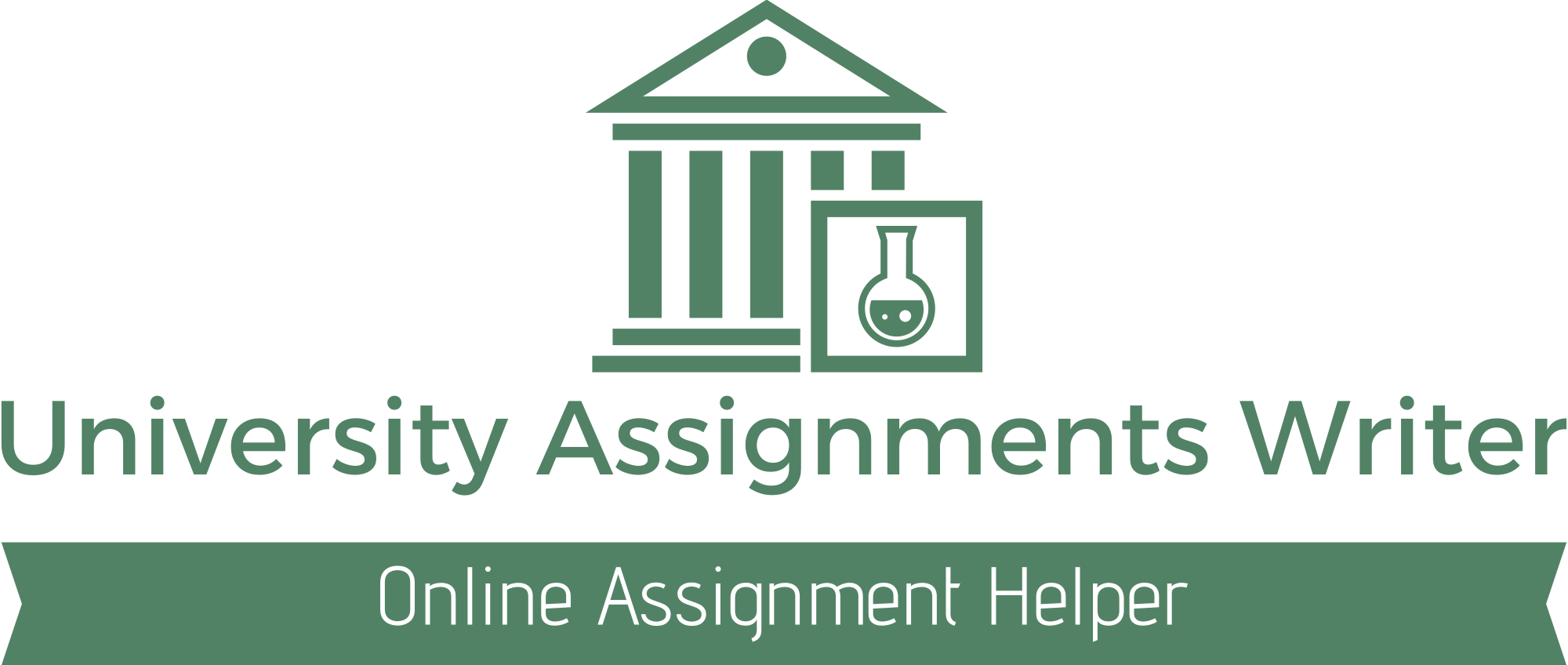Nurse Lope is starting a busy shift in which she was finishing report on Mr. Johnson. During report, Nurse Jim who was finishing his shift also gave Nurse Lope a medicine cup containing three of Mr. Johnson’s

Nurse Lope is starting a busy shift in which she was finishing report on Mr. Johnson. During report, Nurse Jim who was finishing his shift also gave
Read the scenario and address the discussion question:
Scenario
Nurse Lope is starting a busy shift in which she was finishing report on Mr. Johnson. During report, Nurse Jim who was finishing his shift also gave Nurse Lope a medicine cup containing three of Mr. Johnson’s unopened medications that he reported were recently retrieved from the medication dispenser. Nurse Lope was told that these were supposed to have been given 30 minutes ago and asked if she could give them during bedside hand-off. As Nurse Lope planned to stay in Mr. Johnson’s room to complete his vital signs and assessment, she agreed with this plan.
When she opened Mr. Johnson’s electronic medical record to administer these medications, she noticed that these medications were scheduled to be given 3 hours ago. Additionally, one of the medications had a barcode that was not scanning to Mr. Johnson’s chart. Nurse Lope proceeded to administer these medications so that she would not be late on the next round of medications, which included some of the same ones. It was later discovered that the medication that was not scanning was for another patient and should not have been given to Mr. Johnson.
Discussion Question
Outline the concept of professional accountability as it pertains to nursing. Examine the actions of Nurse Jim and Nurse Lope. Discuss how you would approach this scenario if you were in Jim’s and Lope’s position. Based on your analysis of how nurses demonstrate accountability in clinical practice, the nursing process, and evidence-based practice, explain how you would handle this situation if you were the nurse manager overseeing Jim and Lope.
Initial discussion question posts should be a minimum of 200 words and include at least two references cited using APA format. Responses to peers or faculty should be 100-150 words and include one reference. Refer to “RN-BSN Discussion Question Rubric” and “RN-BSN Participation Rubric,” located in Class Resources, to understand the expectations for initial discussion question posts and participation posts, respectively.
American Association of Colleges of Nursing Core Competencies for Professional Nursing Education
This assignment aligns to AACN Core Competencies 2.2, 2.5, 2.6, 9.4.
Verified Sample Answer
The concept of professional accountability in nursing encompasses the responsibility to adhere to ethical standards, regulatory requirements, and professional obligations while providing safe and effective care to patients. Nurses are accountable for their actions, decisions, and the outcomes of patient care, and they must uphold the highest standards of practice to ensure patient safety and well-being (Schick-Makaroff & Storch, 2019). In the scenario described, Nurse Jim’s actions raise concerns regarding medication administration and communication practices.
Providing unopened medications to Nurse Lope without verifying the accuracy of the medication orders or ensuring proper documentation compromises patient safety and violates professional accountability principles. Nurse Lope’s decision to administer the medications without verifying their accuracy or confirming their appropriateness further exacerbates the situation.
If I were in Nurse Jim’s position, I would prioritize patient safety by thoroughly verifying the accuracy of the medication orders, including checking the medication administration record (MAR) and confirming the patient’s identity. Additionally, I would communicate any discrepancies or concerns to the nurse receiving report and seek guidance from the charge nurse or pharmacist if necessary.
As Nurse Lope, I would refrain from administering medications until their accuracy and appropriateness are verified through proper channels, including consulting with the pharmacist or contacting the prescriber for clarification (Flaubert et al., 2021). As the nurse manager overseeing Jim and Lope, I would address this situation through a comprehensive approach focused on education, accountability, and process improvement.
References
Flaubert, J. L., Le, M. S., Williams, D. R., & Wakefield, M. K. (Eds.). (2021). The future of nursing 2020-2030: Charting a path to achieve health equity. National Academies Press.
Schick-Makaroff, K., & Storch, J. L. (2019). Guidance for Ethical Leadership in Nursing Codes of Ethics: An Integrative Review. Nursing Leadership (1910-622X), 32(1), 60–73. https://doi-org.lopes.idm.oclc.org/10.12927/cjnl.2019.25848
Alternative Answer
Nursing is a huge responsibility, and our decisions daily put people’s lives in our hands. In 2001, the American Nurse Association Code of Ethics for Nurses underwent a four-year process to create. It consists of 9 provisions that serve as a framework for ethical nursing practice and guide nurses in their decision-making, Patient advocacy, integrity, accountability, and lifelong learning (Fowler, American Nurse Association, 2015). They also fulfill their roles and responsibilities in providing patient care. Ultimately, it reinforces patients’ trust in nurses to promote safe, compassionate, and adequate healthcare practice.
In the case of the medication error, both nurses, Lope and Jim, fell short of their professional accountability and the code of ethics. Jim, having pulled out the medication, should have administered it. If either of them had followed the correct six medication rights, they would have detected the error. If I were in Nurse Lope’s shoes, I would have proactively addressed the situation, clarifying the reasons for the delay and the urgency of the medication. I would have referred to hospital policies on late medication and medication errors and promptly reported the incident to my charge nurse.
If I were the manager overseeing this situation, my immediate priority would be to address the issue, particularly the incorrect medication given, to ensure there is no potential harm to the patient. Patient safety would be my utmost concern, and I would take all necessary steps to rectify the situation and prevent such errors in the future. I would follow hospital policy and procedures for medication errors. I would follow up and continue to monitor the patient. I also check on my colleagues involved in the error to ensure they are coping with the situation and providing support. More debriefing with nurses is needed when we have situations that happen so we can improve systemic issues or gaps.
References:
Fowler, M. D. M., & American Nurses Association. (2015). Guide to the Code of Ethics for Nurses with Interpretive Statements: Development, Interpretation, and Application: Vol. Second edition. American Nurses Association.
Schick-Makaroff, K., & Storch, J. L. (2019). Guidance for Ethical Leadership in Nursing Codes of Ethics: An Integrative Review. Nursing Leadership (1910-622X), 32(1), 60–73. https://doi-org.lopes.idm.oclc.org/10.12927/cjnl.2019.25848
Place your order now for a similar assignment and get fast, cheap and best quality work written by our expert level assignment writers. Limited Offer: Get 30% OFF Your First Order
Limited Offer: Get 30% OFF Your First Order
Professional Accountability in Nursing: Understanding Standards, Ethics, and Best Practices
Introduction
Professional accountability in nursing represents the cornerstone of quality healthcare delivery. As healthcare systems evolve and patient expectations rise, nurses must demonstrate unwavering commitment to ethical standards, patient safety, and professional excellence. This comprehensive guide explores the multifaceted nature of nursing accountability, examining real-world scenarios and providing actionable insights for nursing professionals.
What is Professional Accountability in Nursing?
Professional accountability in nursing refers to the obligation and responsibility of nurses to provide safe, competent, and ethical care while being answerable for their actions, decisions, and outcomes. It encompasses the nurse’s duty to uphold professional standards, maintain competency, and ensure patient welfare remains the primary focus of all nursing interventions.
Key Components of Professional Accountability
Professional accountability in nursing encompasses several critical dimensions:
Clinical Competence: Nurses must maintain and continuously improve their clinical skills, knowledge, and judgment to provide evidence-based care.
Ethical Responsibility: Adherence to nursing codes of ethics, respect for patient autonomy, and maintaining professional boundaries.
Legal Compliance: Following established protocols, documentation requirements, and regulatory standards.
Patient Safety: Implementing safety measures, error prevention strategies, and quality improvement initiatives.
Professional Development: Engaging in lifelong learning, seeking feedback, and staying current with best practices.
The Framework of Nursing Accountability
Regulatory Standards and Guidelines
Nursing accountability operates within a structured framework of professional standards:
| Standard Type | Description | Governing Body |
|---|---|---|
| Scope of Practice | Defines legal boundaries of nursing practice | State Nursing Boards |
| Code of Ethics | Establishes moral principles and values | American Nurses Association |
| Standards of Care | Outlines expected level of professional performance | Professional Organizations |
| Institutional Policies | Facility-specific protocols and procedures | Healthcare Institutions |
| Quality Measures | Metrics for evaluating nursing performance | Joint Commission, CMS |
Levels of Accountability

Professional accountability exists at multiple levels:
- Individual Level: Personal responsibility for one’s actions and decisions
- Team Level: Collaborative responsibility within healthcare teams
- Institutional Level: Organizational accountability for systems and processes
- Professional Level: Collective responsibility to the nursing profession
- Societal Level: Accountability to the public and healthcare system
Case Study Analysis: Nurse Jim and Nurse Lope
The Scenario
Nurse Lope is beginning a demanding shift when she encounters a critical situation involving medication administration. Nurse Jim, her colleague, provides medications without proper verification protocols, creating a potentially dangerous situation that tests both nurses’ professional accountability.
Analyzing Professional Accountability Failures
Nurse Jim’s Actions:
- Failed to follow proper medication verification procedures
- Violated the “Five Rights” of medication administration
- Demonstrated poor communication and handoff practices
- Showed disregard for established safety protocols
Nurse Lope’s Response:
- Faced with accepting improperly verified medications
- Must navigate between colleague relationships and patient safety
- Responsible for recognizing and addressing the safety concern
- Accountable for subsequent actions and patient outcomes
Professional Accountability Principles Applied
| Principle | Jim’s Failure | Lope’s Opportunity |
|---|---|---|
| Patient Safety First | Compromised by shortcuts | Must prioritize over convenience |
| Following Protocols | Bypassed verification | Should insist on proper procedures |
| Communication | Poor handoff practices | Opportunity for clear, direct communication |
| Professional Integrity | Compromised standards | Maintain ethical standards |
| Continuous Learning | Ignored established practices | Learn from incident for future |
Best Practices for Professional Accountability
1. Medication Safety and Verification
Proper medication administration requires strict adherence to verification protocols:
- Right Patient: Verify patient identity using two identifiers
- Right Medication: Confirm medication name and formulation
- Right Dose: Verify dosage calculations and measurements
- Right Route: Ensure appropriate administration method
- Right Time: Administer at prescribed intervals
- Right Documentation: Record administration accurately
2. Communication and Handoff Procedures
Effective communication prevents errors and ensures continuity of care:
- Use standardized handoff tools (SBAR, ISBAR)
- Provide complete, accurate information
- Encourage questions and clarification
- Document all critical communications
- Follow up on delegated tasks
3. Error Prevention and Response
When errors occur, professional accountability requires:
- Immediate Assessment: Evaluate patient condition and safety
- Prompt Disclosure: Inform appropriate personnel and patients
- Documentation: Record incident details accurately
- Analysis: Participate in root cause analysis
- Learning: Implement changes to prevent recurrence
Statistics and Research on Nursing Accountability
Patient Safety Impact
Recent healthcare statistics demonstrate the critical importance of nursing accountability:
| Metric | Statistic | Source |
|---|---|---|
| Preventable Medical Errors | 250,000+ deaths annually | Johns Hopkins Study |
| Medication Errors | 1 in 5 doses have errors | Institute of Medicine |
| Communication Failures | 70% of serious adverse events | Joint Commission |
| Nursing-Sensitive Outcomes | 30% reduction with accountability measures | AHRQ Research |
Professional Development Trends
Current data shows increasing emphasis on accountability:
- 85% of hospitals require annual competency assessments
- 92% of nurses report feeling personally accountable for patient outcomes
- 78% of healthcare organizations have formal accountability frameworks
- 65% increase in ethics training programs over the past five years
Implementing Professional Accountability
Organizational Strategies
Healthcare institutions can foster accountability through:
Clear Policies and Procedures: Establish comprehensive guidelines for all nursing practices
Regular Training and Education: Provide ongoing professional development opportunities
Supportive Culture: Create environments where nurses feel safe reporting concerns
Performance Feedback: Implement regular evaluation and improvement processes
Recognition Programs: Acknowledge and reward accountable behavior
Individual Nurse Strategies
Nurses can enhance their professional accountability by:
- Self-Assessment: Regularly evaluate personal performance and areas for improvement
- Peer Support: Engage with colleagues for feedback and collaboration
- Professional Development: Pursue continuing education and certification
- Ethical Decision-Making: Use ethical frameworks for complex situations
- Reflective Practice: Analyze experiences to improve future performance
Technology and Accountability
Digital Tools Supporting Accountability
Modern healthcare technology enhances nursing accountability through:
| Technology | Function | Accountability Benefit |
|---|---|---|
| Electronic Health Records | Comprehensive documentation | Improved accuracy and traceability |
| Barcode Medication Administration | Medication verification | Reduced medication errors |
| Clinical Decision Support | Evidence-based recommendations | Enhanced clinical judgment |
| Incident Reporting Systems | Error tracking and analysis | Improved learning and prevention |
| Mobile Communication | Team coordination | Better communication and handoffs |
Legal and Ethical Considerations
Legal Framework
Nursing accountability operates within established legal boundaries:
- Malpractice Law: Nurses are legally liable for negligent actions
- Licensing Requirements: Professional licenses can be revoked for violations
- Institutional Liability: Hospitals may be held accountable for nursing actions
- Regulatory Compliance: Failure to meet standards can result in sanctions
Ethical Guidelines
Professional ethics guide accountable nursing practice:
- Beneficence: Acting in the patient’s best interest
- Non-maleficence: “Do no harm” principle
- Autonomy: Respecting patient choices and rights
- Justice: Fair and equitable treatment
- Veracity: Truthfulness in all interactions
Future Directions in Nursing Accountability
Emerging Trends
The future of nursing accountability will likely include:
Enhanced Technology Integration: AI-powered decision support and predictive analytics
Interprofessional Collaboration: Shared accountability models across healthcare teams
Patient-Centered Approaches: Greater patient involvement in accountability measures
Global Standards: International harmonization of nursing accountability frameworks
Continuous Monitoring: Real-time performance tracking and feedback systems
Conclusion
Professional accountability in nursing represents more than a professional obligation—it embodies the fundamental commitment to patient welfare and healthcare excellence. The case of Nurse Jim and Nurse Lope illustrates how individual actions impact patient safety and professional integrity. By understanding the principles, implementing best practices, and maintaining unwavering commitment to ethical standards, nurses can fulfill their accountability responsibilities while contributing to improved healthcare outcomes.
Effective nursing accountability requires ongoing commitment to learning, adherence to established standards, and the courage to address concerns when they arise. As healthcare continues to evolve, nurses must embrace their role as accountable professionals, ensuring that patient safety and quality care remain at the forefront of all nursing practice.
The journey toward professional accountability is ongoing, requiring continuous reflection, learning, and improvement. By embracing these principles and practices, nurses can fulfill their vital role in healthcare delivery while maintaining the trust and confidence of patients, colleagues, and society.

Dan Palmer is a dedicated academic writing specialist with extensive experience supporting nursing students throughout their educational journey. Understanding the unique challenges faced by nursing students who balance demanding clinical rotations, family responsibilities, and rigorous coursework, Dan provides professional assignment assistance that helps students maintain academic excellence without compromising their other commitments.
With a comprehensive understanding of nursing curriculum requirements and academic standards, Dan delivers high-quality, thoroughly researched assignments that serve as valuable learning resources. His expertise spans various nursing disciplines, including clinical practice, healthcare ethics, patient care management, and evidence-based research.
Dan’s approach combines meticulous attention to detail with a commitment to timely delivery, ensuring that busy nursing students receive the support they need when they need it most. His professional assistance has helped countless nursing students successfully navigate their academic programs while maintaining their professional and personal responsibilities.
Committed to academic integrity and excellence, Dan Palmer continues to be a trusted resource for nursing students seeking reliable, professional assignment support.

